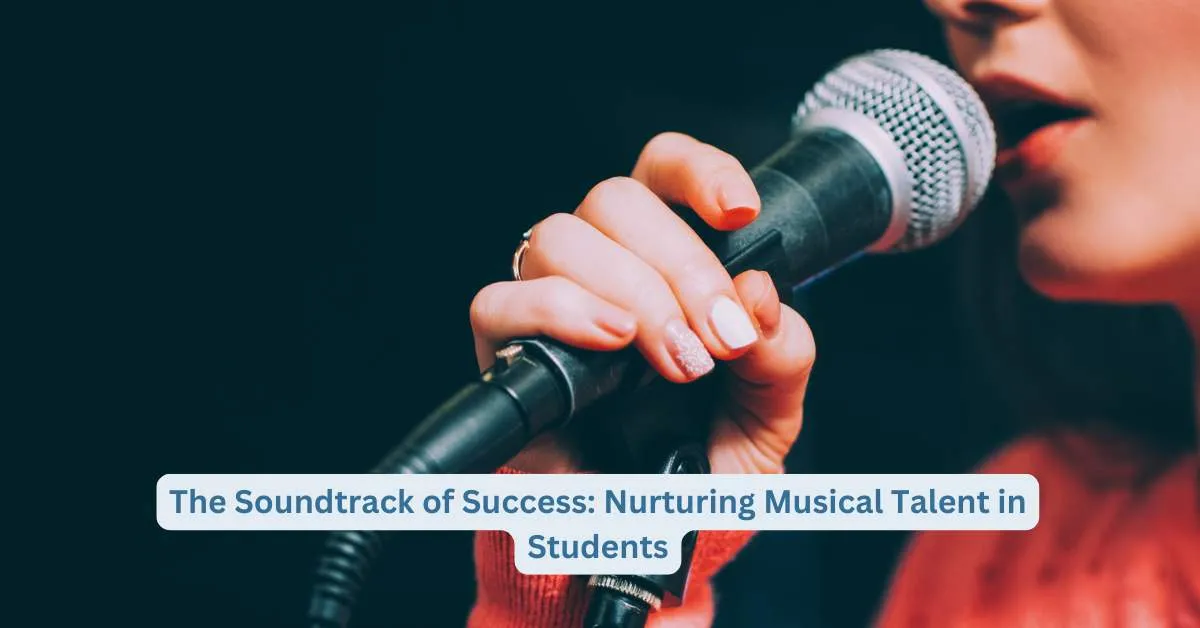Introduction
For many students, music is more than just a subject on the timetable—it’s a form of expression, an emotional anchor, and often, a hidden talent waiting to be discovered. Yet, in an education system increasingly focused on STEM and academic performance, music programs are frequently sidelined. This neglect overlooks something vital: music isn't just an art form. It’s a tool for developing the mind, nurturing discipline, and building a well-rounded individual.
Schools that actively support and nurture musical talent are investing in more than just good performances—they’re building cognitive skills, emotional intelligence, and lifelong confidence.
The Cognitive Power of Music
Numerous studies have shown that learning music enhances brain development, especially in children. It improves memory, strengthens language acquisition, and boosts mathematical reasoning. Playing an instrument or understanding rhythm activates multiple areas of the brain simultaneously, creating complex neural connections.
In practical terms, this means students who engage with music often perform better in other subjects. They learn how to focus, process information, and retain details—skills that are transferable far beyond the music room.
Music as an Emotional Outlet
In the often stressful world of school life, music offers something rare: a space for emotional exploration. Whether it’s composing a song, learning a difficult melody, or performing in front of others, students experience and express a range of emotions in a safe, creative environment.
This emotional engagement:
- Builds resilience through performance and feedback
- Teaches empathy by connecting with lyrics or musical styles
- Provides an emotional vocabulary for students who may struggle to articulate their feelings otherwise
Discipline Through Practice
Behind every successful musical performance lies hours of repetition, persistence, and practice. Music teaches that improvement is gradual and demands consistent effort—an invaluable life lesson.
By practicing regularly, students learn:
- Delayed gratification
- Goal-setting
- Self-assessment and correction
These aren’t just musical skills—they’re habits that support academic achievement and personal development.
Inclusivity and Confidence Building
Unlike many academic or athletic competitions, music offers multiple entry points. Whether a student is a beginner learning chords or a trained vocalist mastering scales, there’s room for all levels. Music programs create an inclusive space where:
- Shy students find their voice
- Children with learning differences thrive in non-verbal expression
- Peer collaboration becomes natural, especially in bands, choirs, and ensembles
Performing—even in a small group—can be a transformative experience. It builds self-esteem, reduces stage fear, and teaches students to trust themselves and others.
The Role of Schools in Nurturing Talent
For music education to thrive, schools must move beyond treating it as an optional extra. Here’s how they can do it:
1. Invest in Music Infrastructure
Quality instruments, practice rooms, and sound systems signal to students that music is taken seriously. Even budget-friendly digital tools can provide a solid starting point.
2. Hire Passionate Music Educators
Great music teachers don’t just teach notes—they mentor, inspire, and help students see potential in themselves. Schools must value these professionals and provide opportunities for continuous development.
3. Offer Diverse Musical Opportunities
From classical to contemporary, solo to ensemble—variety helps students find their niche. Exposure to multiple genres also cultivates open-mindedness and cultural appreciation.
4. Celebrate Student Work
Host recitals, publish student compositions, create interschool music festivals—these platforms motivate students and build community around music.
Addressing Common Challenges
Yes, there are obstacles. Limited budgets, packed curricula, and cultural undervaluing of the arts can all push music to the margins. But many of these challenges can be mitigated with creativity:
- Use free digital tools like GarageBand or Soundtrap.
- Integrate music into other subjects (e.g., learning history through songs).
- Encourage community partnerships with local musicians and artists.
Even small efforts can create a ripple effect in identifying and nurturing student talent.
Conclusion
When students are given the tools to explore music, they're not just learning to play an instrument or read sheet music. They’re developing focus, creativity, emotional intelligence, and a lifelong appreciation for art. More importantly, they’re being given permission to express who they are.
Schools that nurture musical talent aren’t just training future performers—they’re shaping well-rounded, confident individuals ready to take on life with rhythm, discipline, and heart.








Be the first one to comment on this story.